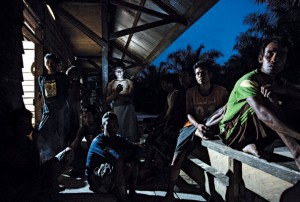
An article released by Bloomberg Businessweek on July 18 found Cargill supplier KLK to be engaging in forced and child labor practices. The article tells of workers and children being held captive, deprived of clean drinking water, working without pay for up to two years, and beaten if they tried to escape. Yet, Cargill has done nothing to take action, let alone investigate the findings of the nine-month study.
Cargill’s addiction to trading profits is overriding commitments to basic human rights, and its inaction is putting Cargill’s customers and their brands’ reputations at risk.
The onus is on Cargill to explain what policy and procedures it has to prevent child and forced labor from entering its supply chain and being sold for use in leading U.S. consumer brand products. When will Cargill be able to assure its customers that the palm oil it sources is not associated with forced and child labor, deforestation, human rights violations or expansion on peatlands.
Customers buying from Cargill should ask:
- What is Cargill’s position on the use of forced and child labor by its suppliers?
- Can Cargill confirm whether it has a no trade list of egregious palm oil producers? The U.S. Department of Labor lists palm oil from Indonesia and Malaysia as having a high risk of being produced using forced and child labor. What are the criteria for determining which companies are on the no trade list? How many companies are on Cargill’s no trade list and who are they?
- What is Cargill’s position and action plan when its suppliers are found to be using forced and child labor? Will Cargill investigate the findings of forced and child labor on KLK plantations documented in the Bloomberg Businessweek article? What action will Cargill take to address these findings and any findings that are corroborated through its own investigations?
- Supply chain traceability back to growers is essential for preventing egregious sources of palm oil, including those made with forced and child labor, from entering Cargill’s and its customers’ supply chains. What efforts is Cargill making to map the sources of palm oil fruit bunches into its supply chain and ensure that forced and child labor are not being used by its suppliers? Cargill should be able to map the labor conditions in its supply chain and the number and key characteristics of workers, including presence of temporary workers, migrant workers, and lack of collective bargaining agreements, as indicators to assess risk of forced and child labor.
- When will Cargill adopt credible supply chain safeguards, including 100% traceability, to prevent and eliminate palm oil connected to slave and child labor, human rights abuses and rainforest destruction from being traded by Cargill and sold to its customers?
In the Businessweek article, Cargill not only denied it had a problem with child and slave labor in its supply chain, but actually defended KLK. Business as usual is not acceptable: Time to tell Cargill to cut child and slave labor from its palm oil.